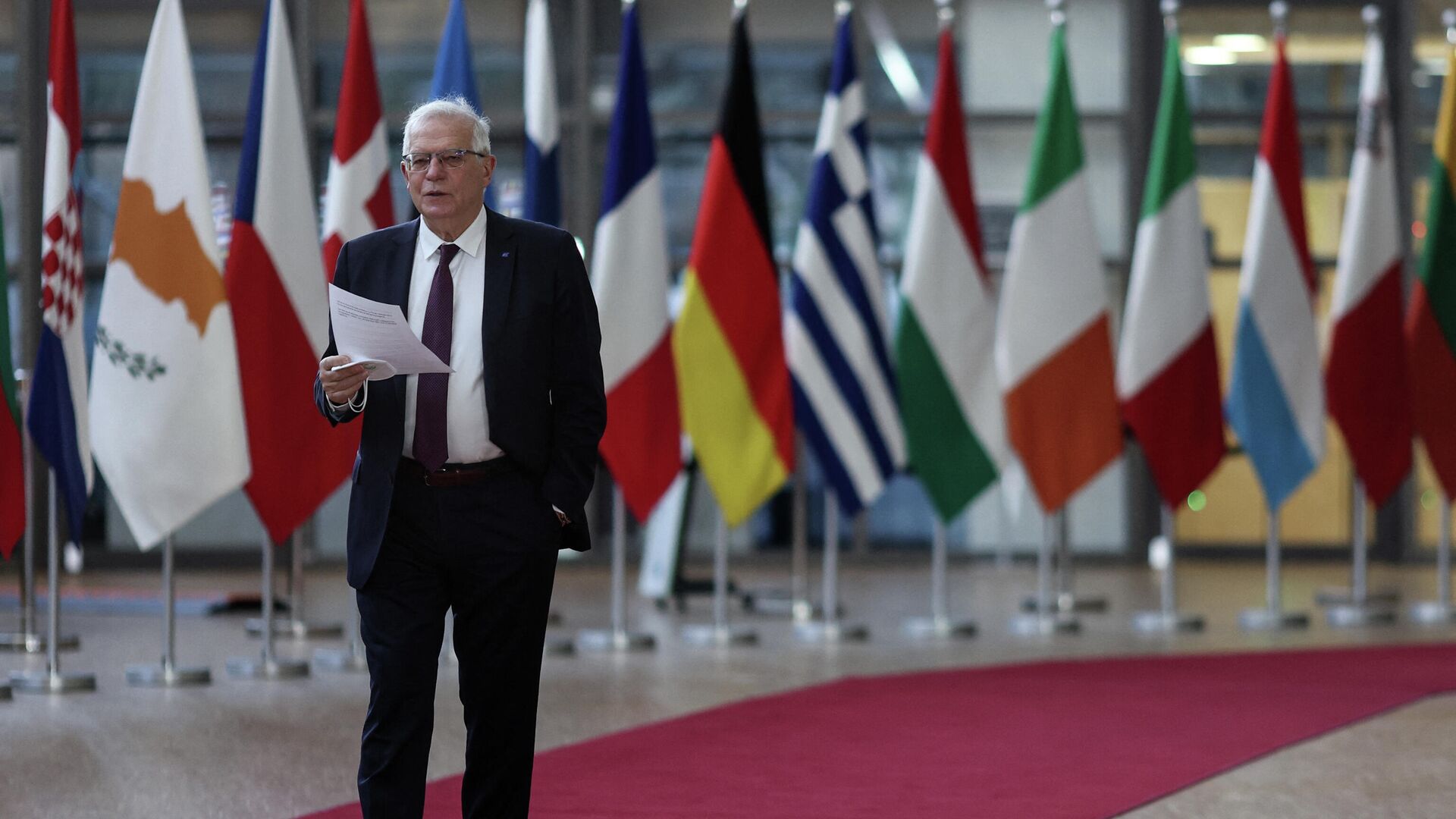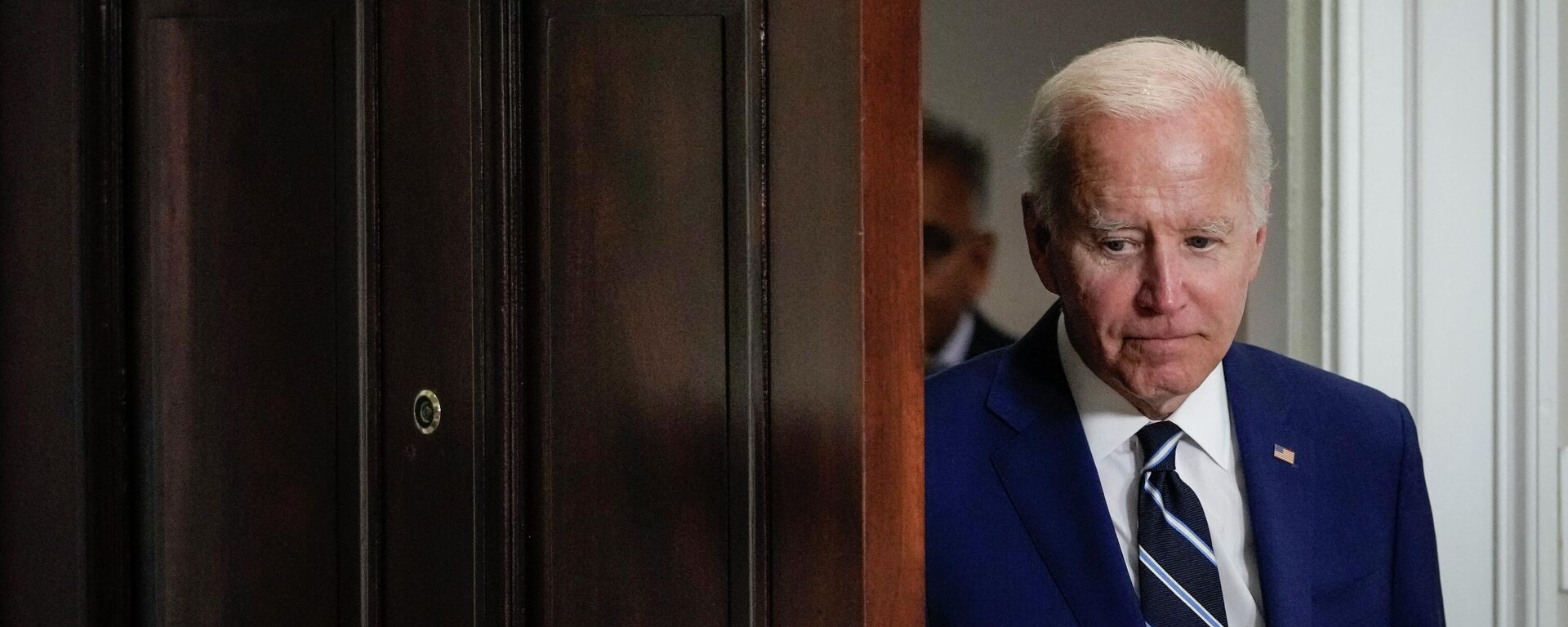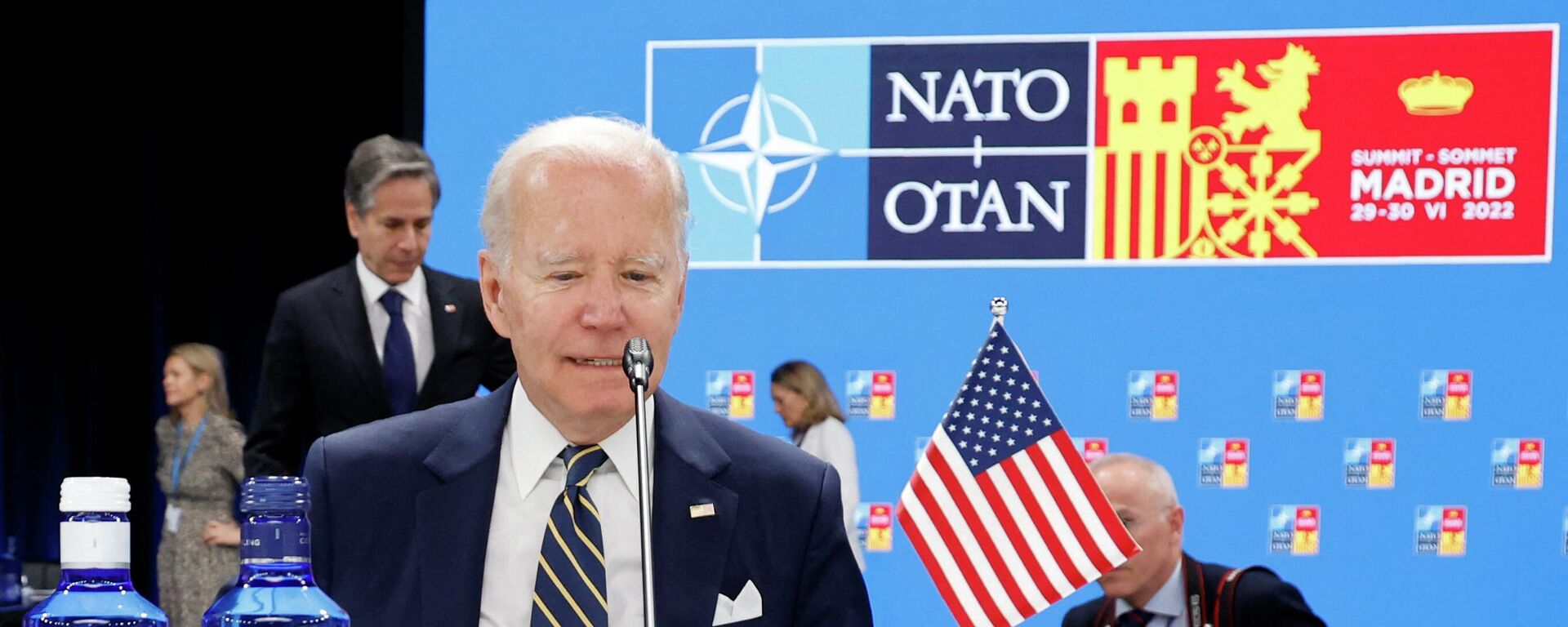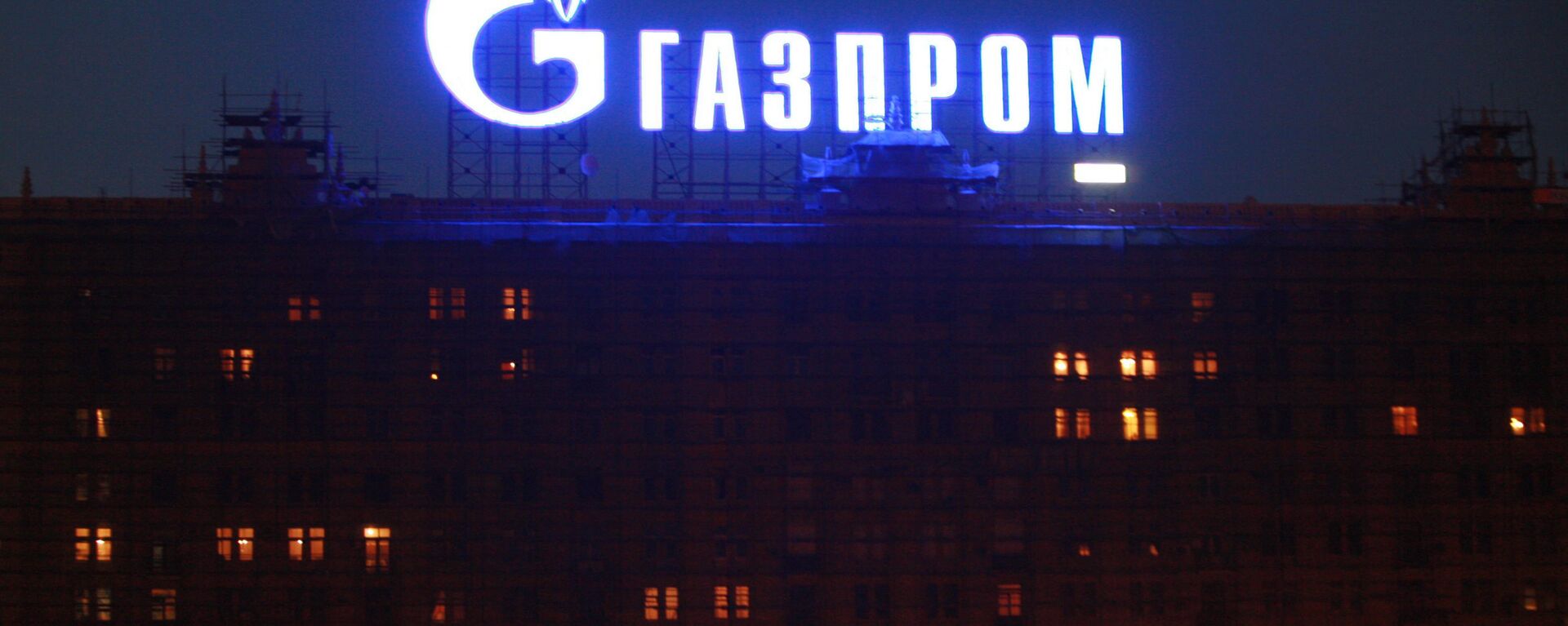https://sputnikglobe.com/20220704/europes-energy-crisis-is-price-of-freedom-from-dependence-on-russia-eus-borrell-says-1096951437.html
Europe’s Energy Crisis is Price of ‘Freedom’ From Dependence on Russia, EU’s Borrell Says
Europe’s Energy Crisis is Price of ‘Freedom’ From Dependence on Russia, EU’s Borrell Says
Sputnik International
The European Union is slipping ever closer to a recession as the self-inflicted pain Brussels has placed on bloc economies by trying to ‘phase out’ Russian... 04.07.2022, Sputnik International
2022-07-04T17:05+0000
2022-07-04T17:05+0000
2022-07-04T17:05+0000
josep borrell
europe
energy
crisis
sanctions
dependence
democracy
russia
https://cdn1.img.sputnikglobe.com/img/07e6/02/15/1093231708_0:0:3073:1728_1920x0_80_0_0_07800c2426b39d3b56377af899b94197.jpg
The energy crunch being felt by the European Union is the price the bloc must pay to “defend democracy” and end the influence Russia has on Brussels’ political decision-making, EU foreign affairs chief Josep Borrell has argued.Borrell expressed confidence that sanctions would eventually bring Moscow to heel and force it to “change its strategic calculations,” even if this is unlikely to take place in the near future.Russia, Borrell argued, “is forced to import many products with high added value which it does not produce. For advanced technologies, it depends by 45 percent on Europe, 21 percent on the United States, and only 11 percent on Asia,” he calculated.“In the military sector, which is crucial in the context of the conflict in Ukraine, sanctions limit Russia’s ability to produce precision missiles like the Iskander and the Kh-101. Almost all foreign car manufacturers have decided to withdraw from Russia and the few cars produced by Russian companies will be sold without airbags or automatic transmissions…The oil industry is suffering not only from the abandonment of foreign operators, but also the difficulty of accessing advanced technologies such as horizontal drilling,” Borrell assured. On top of that, he suggested, the country is suffering from a lack of access to Western passenger aircraft, has been disconnected from global research networks and faced a “massive brain drain.”“Since we don’t want to go to war with Russia, economic sanctions are at the core” of the EU’s response to the Ukrainian crisis, Borrell wrote, adding that the EU has now demonstrated that “Europe, if provoked, can respond” in a crisis not just in “words,” but in “deeds.”Race to the BottomEuropean economies have already taken a beating thanks to politicians’ politically-motivated decision to place new sanctions on Russia and try to limit energy imports to try to “punish” Moscow over its military operation in Ukraine. Late last month, Greek Prime Minister Kyriakos Mitsotakis told local media that the economic situation in Europe was comparable to a “war.” Also last month, Berlin activated the second of its three-stage emergency plan to reduce gas consumption, with economists and business leaders alike warning that the industrial giant was heading for a calamity – and possibly the country’s worst economic crisis since the Second World War.Commenting on the EU’s economic maneuvering amid the Ukraine crisis, Russian President Vladimir Putin compared Brussels’ policies to “economic suicide” and warned that the “rejection of Russian energy resources” would lead to the systematic undermining of Europe’s competitiveness globally.“One gets the impression that our Western colleagues, politicians and economists have simply forgotten the foundations of the elementary laws of economics, or, to their detriment, prefer to deliberately ignore them,” Putin said, suggesting that EU’s economies were being dictated by the bloc’s “American overlords,” who stand to lose far less compared to their European colleagues.
https://sputnikglobe.com/20220704/register-for-econ-101-us-energy-producers-grill-bidens-wh-intern-after-call-to-lower-gas-price-1096939582.html
https://sputnikglobe.com/20220630/biden-us-to-announce-800-million-in-new-funding-package-for-ukraine-including-air-defense-1096836642.html
https://sputnikglobe.com/20220629/eu-told-to-prepare-for-economic-hammering-forget-wildly-optimistic-plans-to-replace-russian-gas-1096800376.html
Sputnik International
feedback@sputniknews.com
+74956456601
MIA „Rossiya Segodnya“
2022
News
en_EN
Sputnik International
feedback@sputniknews.com
+74956456601
MIA „Rossiya Segodnya“
Sputnik International
feedback@sputniknews.com
+74956456601
MIA „Rossiya Segodnya“
josep borrell, europe, energy, crisis, sanctions, dependence, democracy
josep borrell, europe, energy, crisis, sanctions, dependence, democracy
Europe’s Energy Crisis is Price of ‘Freedom’ From Dependence on Russia, EU’s Borrell Says
The European Union is slipping ever closer to a recession as the self-inflicted pain Brussels has placed on bloc economies by trying to ‘phase out’ Russian energy continues to take its toll on fuel costs, inflation and economic competitiveness. The EU has nonetheless vowed to stay the course to ‘punish’ Russia for its military operation in Ukraine.
The energy crunch being felt by the European Union is the price the bloc must pay to “defend democracy” and end the influence Russia has on Brussels’ political decision-making, EU foreign affairs chief Josep Borrell has argued.
“By the end of 2022, we will reduce Russian oil imports by 90 percent, and rapidly reduce gas imports. These decisions are gradually freeing us from a dependence which has long influenced our political decisions…Of course, this rapid reduction in dependence on Russian energy also creates serious difficulties for many EU countries and various sectors of economic activity. But this is the price which we must pay to defend our democracies and international law, and we are taking the necessary steps to resolve these problems in solidarity,” the diplomat
wrote in an op-ed in Italy’s La Stampa newspaper on Monday.
Borrell expressed confidence that sanctions would eventually bring Moscow to heel and force it to “change its strategic calculations,” even if this is unlikely to take place in the near future.
Russia, Borrell argued, “is forced to import many products with high added value which it does not produce. For advanced technologies, it depends by 45 percent on Europe, 21 percent on the United States, and only 11 percent on Asia,” he calculated.
“In the military sector, which is crucial in the context of the conflict in Ukraine, sanctions limit Russia’s ability to produce precision missiles like the Iskander and the Kh-101. Almost all foreign car manufacturers have decided to withdraw from Russia and the few cars produced by Russian companies will be sold without airbags or automatic transmissions…The oil industry is suffering not only from the abandonment of foreign operators, but also the difficulty of accessing advanced technologies such as horizontal drilling,” Borrell assured. On top of that, he suggested, the country is suffering from a lack of access to Western passenger aircraft, has been disconnected from global research networks and faced a “massive brain drain.”
“Since we don’t want to go to war with Russia, economic sanctions are at the core” of the EU’s response to the Ukrainian crisis, Borrell wrote, adding that the EU has now demonstrated that “Europe, if provoked, can respond” in a crisis not just in “words,” but in “deeds.”
European economies have already taken a beating thanks to politicians’ politically-motivated decision to place new sanctions on Russia and try to limit energy imports to try to “punish” Moscow over its military operation in Ukraine. Late last month, Greek Prime Minister Kyriakos Mitsotakis told local media that the economic situation in Europe was
comparable to a “war.” Also last month, Berlin
activated the second of its three-stage emergency plan to reduce gas consumption, with economists and business leaders alike warning that the industrial giant was heading for a calamity – and possibly the country’s worst economic crisis since the Second World War.
Commenting on the EU’s economic maneuvering amid the Ukraine crisis, Russian President Vladimir Putin
compared Brussels’ policies to “economic suicide” and warned that the “rejection of Russian energy resources” would lead to the systematic undermining of Europe’s competitiveness globally.
“One gets the impression that our Western colleagues, politicians and economists have simply forgotten the foundations of the elementary laws of economics, or, to their detriment, prefer to deliberately ignore them,” Putin said, suggesting that EU’s economies were being dictated by the bloc’s “American overlords,” who stand to lose far less compared to their European colleagues.





